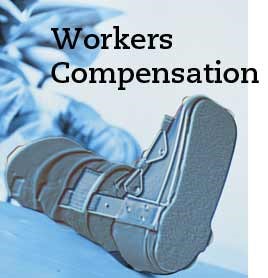
The law providers for Workers’ Compensation benefits for all injuries or illness that arise from or occur during the course of employment. This does not mean that the accident or illness has to occur at any particular place. Many people don’t work in a factory or an office every day. Some work from their vehicles or at different sites each day, such as a home health aide, a construction worker, or a salesperson.
Portal to Portal
Certain employees are entitled to “Portal to Portal Coverage,” which is essentially door-to-door coverage. An example of this might be an exterminator who uses a company vehicle to pick up supplies once per week and then travels to customers from home during the remainder of the week. Under Portal to Portal Coverage, he would be entitled to Workers’ Compensation benefits if he was involved in an automobile accident on the way to a job.
Another example is a home health aide who travels from patient to patient and falls and breaks a hand in between visits on a snowy day. This person may be entitled to Workers’ Compensation benefits, as an argument can be made that the injury arose out of or in the course of employment.
Your employer or Insurance Company, however, is likely to argue that Portal to Portal Coverage does not apply. The Carrier may argue that there was a deviation for a personal reason that was outside the duties of the job. For example, if the home health aide on that same snowy day decided to check on a child and slips and falls on the sidewalk going into the school, the Carrier could argue that the injury did not arise out of or occur in the course of employment. Rather, the Carrier will argue the injury was the result of a personal act. Even for people who work in an office or factory, Workers’ Compensation benefits may extend to injuries that occur outside of the physical office. Often, this occurs in the context of parking. If your employer provides parking, and you are injured while you’re in the parking lot, this is generally covered under the Workers’ Compensation law. A similar situation arises if you work in a high-rise building and are injured in the lobby or elevator.
Cases of this type are very fact dependent. When considering to bring a Workers’ Compensation case arising out of an accident that occurs away from the workplace, it is best to seek immediate legal help. There may be other legal remedies, such as New York State No-Fault Benefits or a civil action against the owner or operator of the property where the injury occurred that must also be considered. See the Chapter on Third Party Actions.
William W. Crossett, IV
Partner
Email: crossett@mcvlaw.com
Phone: 315-471-1664
Mr. Crossett concentrates his practice in the representation of Injured Workers. Since 1982, he has regularly appeared before the Workers’ Compensation Board and the Courts of New York. As an advocate for the Injured Worker, he has testified before the New York State Senate and has presented many Continuing Legal Education programs. Presently, Mr. Crossett serves as President of the Injured Workers Bar Association of New York and is an active member of Workers Compensation Law Division of the New York State Bar Association. In 2012, he was inducted as a fellow in the College of Workers Compensation Lawyers. Mr. Crossett practices throughout Central New York with an office in Syracuse.








 Try Our Workers Compensation Benefits Calculator!
Try Our Workers Compensation Benefits Calculator!